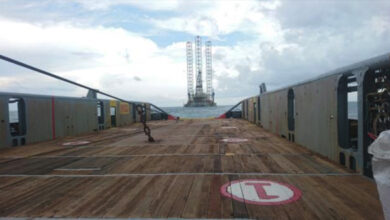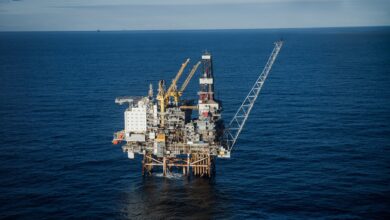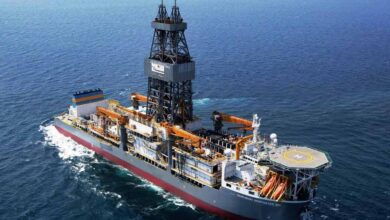Neptune conducts dual-drilling operation from integrated subsea template structure
Neptune Energy has conducted the world’s first dual-drilling operation from an integrated subsea template structure at the Fenja field in the Norwegian North Sea, the company announced.
In conjunction with the startup of the Fenja drilling campaign in April, Neptune teams maximized the capabilities of Seadrill’s West Phoenix drilling rig to drill two wellbores at the same time.
While many drilling rigs are equipped with dual-drilling capabilities, this was the first time dual drilling has been executed from an integrated subsea template structure. This accelerated the drilling operations, reduced costs and lowered operational emissions.
“Several drilling rigs have two drilling facilities where these traditionally support one another,” Thor Andre Løvoll, Director of Drilling and Wells in Norway, Neptune Energy, said. “However, in the instance of our operations, we decided to use these facilities independently to concurrently drill two wellbores.”
“The experience of dual drilling on Fenja has been positive, and we could see this method adopted as a more standard practice in the future. The current challenges in the market encourage us to rethink the way we do things safely, efficiently and with lower carbon emissions,” Mr Løvoll said.
Neptune recently conducted dual-drilling operations on an exploration well on the Norwegian Continental Shelf (NCS), and the experience was applied toward the Fenja subsea field development with success.
Fenja is Neptune’s first operated development project on the NCS and is estimated to contain 97 million BOE. Fenja will deliver around 40,000 BOE/day at plateau.
Located in the Norwegian Sea 120 km northwest of Kristiansund in a water depth of 320 m, the subsea field will be developed as a tieback to the Njord-A platform. At 36 km, it will be the world’s longest electrically trace-heated pipe-in-pipe subsea development.




